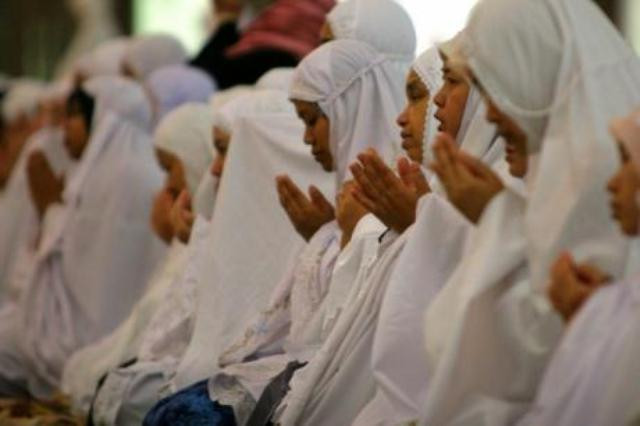"Baba, I want to offer prayers with you," my daughter said to me one day.
I treated the words quite casually and told her that she could join me. Nevertheless, I was amazed when she started reciting 'Surah Fateha' and a few other Quranic verses on the prayer mat. I lost my concentration and started listening to her. Tears came to my eyes and I was grateful to the Almighty.
In Malaysia, my daughter had accompanied me to the masjid (mosque) a couple of times before. I used to join the jamat (congregation) as she ran around the spacious halls. As soon as she realised that I was about to finish my prayer she would come and sit beside me. The system worked perfectly. I liked that no one objected my daughter's activity. After her routine run in the mosque, she was a calm and silent observer like many other children who came in with their parents.
The way Malaysians follow Islam not only brings harmony but also eases one’s life. After finishing salat (prayer) with the jamat, people shake hands with one another, enquire about each other’s health and try to find ways through which they can help one another. This behaviour is unique and had a positive effect on my personality. I felt quite relaxed when offering prayers in Malaysian mosques as compared to mosques in Pakistan.
A Malaysian community has only one mosque in an area but there can be lot of 'surau'- which are also praying places, but are smaller in size with clean ablution areas. Anybody can be the imam (religious leader) of the surau.
During Ramazan, the mosques are full of people and the imam's beautiful recitation of the Holy Quran echoes in the halls, touching the heart of everybody present there, engulfing them in a state of amazement. Most people usually leave after the eighth taraweeh (special prayer offered during Ramazan) but some stay and join the imam for another 12 taraweeh. The affluent ones arrange and distribute food amongst the crowd.
Children also accompany their parents and females coming to the mosque is a norm. People greet one another when they enter the mosque. There is harmony, nobody dislikes anyone and dinners are frequently arranged by Muslims to strengthen their unity. Every part of a Malaysian mosque is clean; the ablution area, the bathrooms, the carpets. Children are taught in schools how to perform ablution, offer prayers and recite duas (small prayers) on different occasions.
I have always felt like a part of the Malaysian community. Whenever there is a discussion in the mosque, someone used to translate it and share the crux of the matter with me. They always invited me, shared their beliefs, norms and social aspects with me openly. The Malaysians love to share ideas and listen to everybody's opinion.
In Pakistan, I have attended a few gatherings organised by the Tableeghi Jamaat in different mosques which did miracles. I strongly believe that these gatherings bring people closer; the young and the aged, the regular visitors and the occasional ones. The topic of the khutba (sermon) should focus on the basics of Islam and should not be the reflection of any particular sect.
I have offered salat in many mosques in Kuala Lumpur, mosques which are meant for Muslims. You will not find any Deobandi, Barailvi, Ahle Hadees, or a person belonging to any other sect - everyone is Muslim.
I hope this culture prevails in Pakistan and we can offer prayers in the masjid without any criteria set by the large number of sects we have here. The sharing of views and ideas should be allowed in a constructive manner.



COMMENTS
Comments are moderated and generally will be posted if they are on-topic and not abusive.
For more information, please see our Comments FAQ